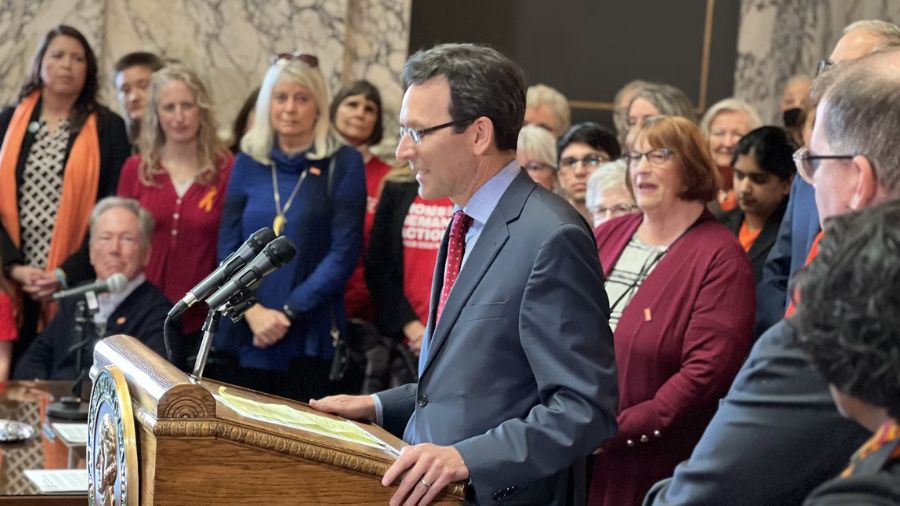Rantz: We can’t let our emotions restrict our rights
Aug 4, 2016, 5:54 AM | Updated: 6:53 am

Jason Rantz is ready to debate Don O'Neill on the topic of guns. (AP)
(AP)
On the Ron and Don Show this week, Don invited folks to enter the arena on the topic of banning AR-15s, a proposal he supports in the wake of too many shootings, local and national. I’ll happily join the arena for the debate because while his argument is emotionally powerful and rooted in good intentions, it’s flawed and dangerous.
Related: Is it goodbye to the AR-15 or more of our children?
Don sets up the argument like this: make a choice — you either say goodbye to the AR-15 (and similar types of guns) or you say goodbye to the innocent lives of children.
It’s a specious choice. It’s also constitutionally invalid.
Are we to believe kids (or adults, for that matter) won’t become victims of gun violence unless we get rid of the AR-15 (which is not, as some foolishly claim, a weapon of war)?
Let’s say you ban the sale and production of these guns. No more shootings? Of course not. The next available gun is used for the exact same purpose.
Presumably, Don targets the AR-15 because it’s “a killing machine.” So what’s the bar on the amount of death we permit via gun before we ban them? In Mukilteo, three people were taken from us too soon. Is three deaths the bar? Is there a number of deaths we find acceptable?
If a handgun is used to kill three or four people, why wouldn’t the argument then be to ban the handgun? If the claim is that you don’t want to take guns away, then the logic behind banning the AR-15 seems untenable. The thinking is dangerous in that is has the effect of infringing on rights.
“When you think about the Second Amendment and when that was created, the AR-15 wasn’t around then,” Don said on this show, “and so if you have a right to any arm you want to own, go out and see if you can buy a bazooka and see what happens to you.”
He’s correct, obviously, that the AR-15 wasn’t around at the time of the Second Amendment. Similarly, the Internet wasn’t around when the First Amendment was conceived; should we not protect free speech online? They had no concept of the Internet, after all.
Don’s argument ignores what we look at when interpreting the Constitution. Many times, it’s about the intent and the intent is crystal clear: the Second Amendment was written with citizen protection in mind. Protection from a tyrannical government. And, at the time, the guns permissible were guns used to reasonably protect oneself from the government and from a lack of government protection. Bazookas are not guns; this is a frivolous argument.
This interpretation was supported recently in District of Columbia v. Heller: “The Second Amendment protects an individual right to possess a firearm unconnected with service in a militia, and to use that arm for traditionally lawful purposes, such as self-defense within the home.”
Don goes on to say that he believes there needs to be a limit on the type of weapons we can buy. Fair enough. I agree. So does the Supreme Court. But you’ve given no guidelines on how we judge which guns should be banned. It’s an emotional argument.
“How can you not be emotional about this?” Don asks. “How dare you not be emotional about it.”
We absolutely should be emotional about the shootings. They’re disgusting and the shooters we catch should be put to death. But we don’t use emotions to restrict rights, whether that include the right to bear arms or the right to give our opinions on guns (however unpopular they might be).
Emotional decisions aren’t fully thought out; how could they be? We make them while dealing with grief, depression, emptiness, anger. We’re not thinking clearly when we act out emotionally.
We have a shared goal here: a world where we keep bad guys from using guns to harm good people. So let’s have the conversation, but let’s use logic and not emotion, so we can come to solutions that don’t simply respect rights, but actually work.














